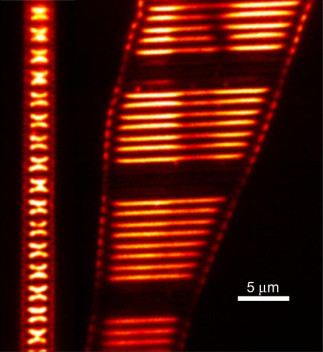Jason Slinker, Department of Physics, University of Texas at Dallas, Richardson, TX, USA
DNA, possesses a number of attractive properties for use in nanoscale circuits, and charge transport (CT) through DNA itself is of both fundamental and practical interest. Fundamentally, DNA has a unique configuration of π-stacked bases in a well ordered, double helical structure. Given its unparalleled importance to life processes and its arrangement of conjugated subunits, DNA has been a compelling target of conductivity studies. In addition, further understanding of DNA CT will elucidate the biological implications of this process and advance its use in sensing technologies. We have investigated the fundamentals of DNA CT by measuring the electrochemistry of DNA monolayers under biologically-relevant conditions. This approach has uncovered both fundamental kinetic parameters to distinguish between competing models of operation as well as the practical implications of DNA CT for sensing. In collaboration with the UT Southwestern Simmons Cancer Center, this understanding has been used to create a new biological assay of DNA damage repair and anticancer drug activity. Furthermore, we are leveraging our studies of DNA conductivity for the manufacture of nanoscale circuits. We are investigating the electrical properties and self-assembly of DNA nanowires containing artificial base pair surrogates, which can be prepared through low cost and high throughput automated DNA synthesis. This unique and economically viable approach will establish a new paradigm for the scalable manufacture of nanoscale semiconductor devices.
Site web du groupe du Prof. Slinker's
Cette conférence est présentée par le RQMP Versant Nord du Département de physique de l'Université de Montréal et le Département de génie physique de Polytechnique Montréal.

